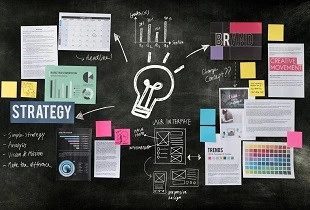Maintaining a human touch in a remote-working environment
Discover the key to maintaining a human touch and facilitating collaboration in the new remote-working world
Add bookmark
PEX Network caught up with Dr. Bonnie Cheuk, learning agility and learning culture global capability lead at AstraZeneca, ahead of her session at Remote Working APAC 2020, to explore the importance of maintaining human touch in a remote-working environment and her advice for accomplishing this through tools, technologies and the right approach.
PEX Network: What do you think is the biggest challenge for organizations when it comes to integrating remote working and what do you think they can do to meet this challenge?
Bonnie Cheuk: Remote work is not just about using new technologies, it is about rethinking what work is and questioning the traditional approach. Do you need to have back-to-back meetings, do you set aside time to work, innovate, create, connect, and think? Do you build time to slow down to go faster, reflect and share learning? Do you set clear ground rules to respect one another's preferences and needs? In a remote world, when physical cues are no longer invisible, you need to be even more human-centric, to yourself and to others. As you quickly shift to remote working, have you considered what is the appropriate approach to get work done? For example, you do not need to have real-time meetings all the time, you can stay transparent through asynchronous conversation.
PEX Network: What can the audience expect from your presentation entitled “Be remotely human: Learning agility + employee experience + technology”?
BC: There is a difference between adopting remote-working technologies and having a remote-working culture that focuses on employee experience. The Covid-19 pandemic has sparked a rapid shift in workplace dynamics and companies are both learning and unlearning how to be remotely human. The answer goes beyond the provision of new technologies and the temptation to move all the existing communication, learning and collaboration activities like-for-like online.
Going digital gives us the opportunity to reimagine what being human means at work. Work is collaborative in nature, with trust and strong relationships critical to build resilience, to fail fast and to learn fast. By empowering our team with human-centric approaches to work, learn and innovate remotely, we can create a ‘virtual table’ to have meaningful conversations, we can create a ‘virtual watercooler’ to allow time for self and team reflection and we can create moments of serendipity online. There are approaches everyone can deliberately practice to be more remotely human. This is what we will explore together.
I like to credit my doctorate research mentor, Dr Brenda Dervin, founder of the Sense-Making Methodology Institute. She has been studying how human beings make sense of the world and calls for the need to understand human needs in a “communicative” way. I also like to thank Victoria Ward for her inspiration on this topic.
PEX Network: What are the three key takeaways that delegates will gain from your session at Remote Working APAC?
BC: This session will stimulate the audience to challenge ingrained assumptions about work and leave with some new ideas how to add human touch when working remotely.
The session will invite the attendees to be user-centric and draw on Dervin’s sense-making methodology to recognize that human beings make sense of the world with six Hs, head, heart, hands, habits, hegemony and habitus. When working remotely, we need to take a holistic approach to relate with one another.
It will also ask attendees to pay attention to power issues by building habits that give a voice to everyone.
PEX Network: Why do you think is important for professionals to attend Remote Working APAC 2020?
BC: It is important that professionals take the opportunity to reimagine how work is done, and how to leverage collaboration tools to serve human needs, rather than be dominated by the technologies and get "zoomed out".
































